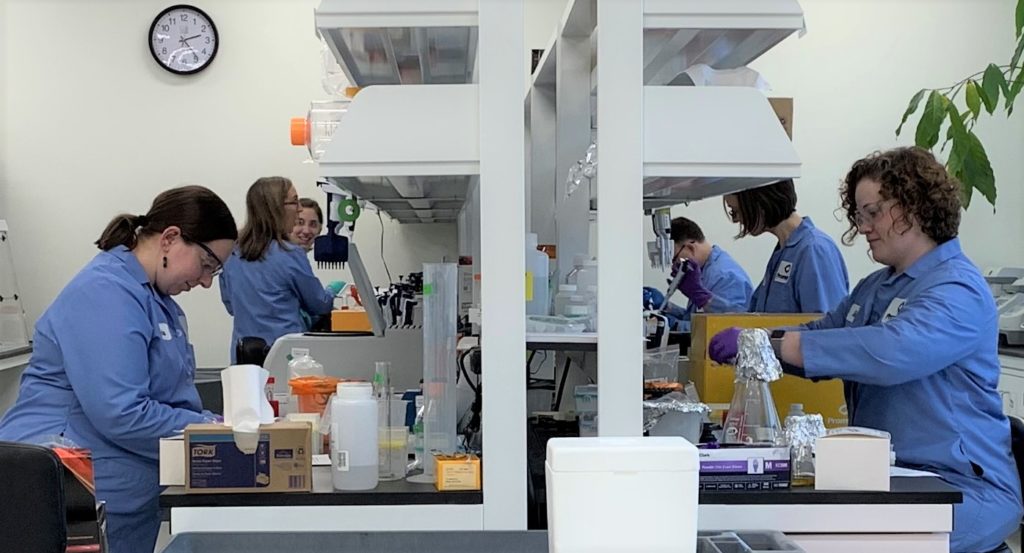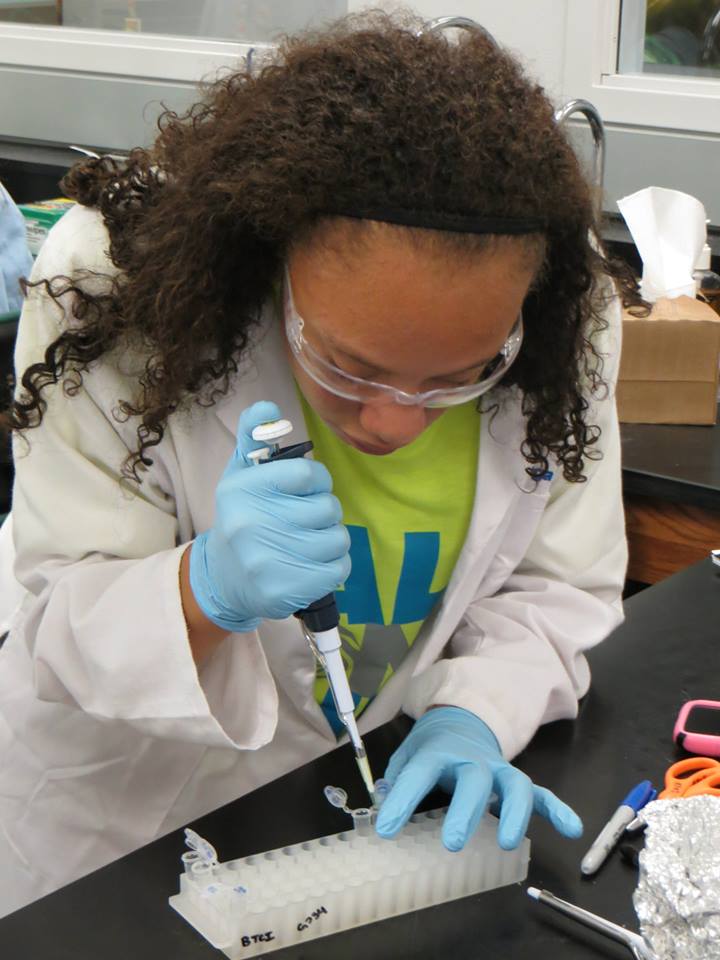Photo 51 is the now-famous X-ray diffraction picture that allowed Watson and Crick to crystalize centuries work of scientific study (from Mendel to Chargaff) into a viable structural model that explained how DNA could serve as the material of the gene. The photo was painstakingly produced by Dr. Rosalind Franklin, a contemporary of Watson and Crick. Although she and her colleague R.G. Gosling did publish their work in the same issue of Nature as the Watson and Crick paper (1,2), their work did not receive the same public accolades of that of Watson and Crick.

Women scientists have been contributing to our understanding of the world around us throughout history. On this 100th anniversary of Dr. Rosalind Franklin’s birth, we want to take a little time to recognize the work that women scientists are doing at Promega.
At Promega you will find women scientists at work in every stage of research and production: from product and technology creation to quality assurance to production to training and support. The work of production and quality assurance scientists enables key products and systems to be produced at large scale so that researchers around the globe can benefit from them. In the applications group, scientists help customers and partners develop new applications for existing products. In scientific training and technical services, scientists help troubleshoot research questions and teach scientists about new technologies that they can use in their laboratories. In R&D scientists are working with collaborators and customers to develop technologies and systems to solve emerging questions in molecular biology, ecology and applied science areas.
When asked how the scientific community can give voice to more women in science, Dr. Danette Daniels, one of our scientists who has authored several papers at Promega replied, “Support is key at two stages; mentorship and encouragement in the very early days, even prior to University, and then later from top down, with leaders and managers working diligently to promote progress and advancement of women or under-represented groups through their careers. It has to be continual support.”

To this end Promega supports the educational efforts of several organizations, including the BioPharmaceutical Technology Center Institute (BTCI.org), which works with students and teachers as well as college and graduate students to provide key lab experiences and mentoring opportunities. Programs including the Training Support Program, iGEM Grant Awards and New Lab Start Up Program provided by some Promega local branch offices also support new scientists and students. You can read more about our work to support STEM education and scientists at our Corporate Responsibility Report website.
In this blog, we amplify the voices of our women scientists by highlighting some of their recent publications created in collaboration with colleagues at Promega and other institutions:
- Yichi, S., Walker, J.R., Park, Y., Smith, T.P., Liu, LX., Hall, M. P., Labanieh, L., Hurst, R., Wang, D.C., Encell, L.P., Kim, N., Zhang, F., Kay, M.A., Casey, K.M., Majzner, R.G., Cochran, J.R., Mackall, C.L., Kirkland, T.A., and Lin , M.Z. (2020) Novel NanoLuc substrates enable bright two-population bioluminescence imaging in animals. Nature Methods
- Robers M.B., Friedman-Ohana R., Huber K, Kilpatrick L, Vasta JD, Benedict -Tilman Berger, Chaudhry C, Hill S, Müller S, Knapp S, and Wood K. (2020) Quantifying Target Occupancy of Small Molecules Within Living Cells Ann. Rev. Biochemistry 89, 557–581.
- Robers MB, Vasta JD, Corona CR, Ohana RF, Hurst R, Jhala MA, Comess KM, Wood KV. (2019) Quantitative, Real-Time Measurements of Intracellular Target Engagement Using Energy Transfer. Meth. Mol. Biol.
- Mingyan Cao, Sri Hari Raju Mulagapati, Bhargavi Vemulapalli, Jihong Wang, Sergei V. Saveliev, Marjeta Urh, Alan Hunter, Dengfeng Liu. (2019) Characterization and quantification of succinimide using peptide mapping under low-pH conditions and hydrophobic interaction chromatography. Analytical Biochemistry 566, 151–9.
- Mingyan Cao, Weichen Xu, Ben Niu, Ivy Kabundi, Haibin Luo, Meagan Prophet, Weimin Chen, Dengfeng Liu, Sergei V. Saveliev, Marjeta Urh, Jihong Wang (2019)
An automated and qualified platform method for site-specific succinimide and deamidation quantitation using low-pH peptide mapping. Journal of Pharmaceutical Sciences 108, 3540–9. - Ohana,R.F., Hurst, R., Rosenblatt, M., Levin, S., Machleidt, T., Kirkland, T.A., Encell, L.P., Robers, M.B. and Wood, K.V. (2019) Utilizing a Simple Method for Stoichiometric Protein Labeling to Quantify Antibody Blockade. Nature Scientific Reports 9, article number 7046.
- Laura E. Kilpatrick, Diana C. Alcobia, Carl W.White, Chloe J. Peach, Jackie R.Glenn, Kris Zimmerman, Alexander Kondrashov, Kevin D.G. Pfleger, Rachel Friedman Ohana, Matthew B. Robers, Keith V. Wood, Erica K. Sloan, Jeanette Woolard, Stephen J. Hill (2019) Complex Formation between VEGFR2 and the β2-Adrenoceptor. Cell Chemical Biology 26, 830-841e.9
- Daniels, D.L., Riching, K.M., and Urh, M. (2019) Monitoring and deciphering protein degradation pathways inside cells. Drug Discovery Today 31, 61–8.
- Daniels, D.L., Riching, K.M., and Urh, M. (2019) Targeted Protein Degradation: A new direction for treatment of diseases Research Outreach
- Jung SM, Hung CM, Hildebrand SR, Sanchez-Gurmaches J, Martinez-Pastor B, Gengatharan JM, Wallace M, Mukhopadhyay D, Martinez Calejman C, Luciano AK, Hsiao WY, Tang Y, Li H, Daniels DL, Mostoslavsky R, Metallo CM, Guertin DA (2019) Non-canonical mTORC2 signaling regulates brown adipocyte lipid catabolism through SIRT6-FOXO1 Molecular Cell 75, 807–822.e8
References
- Tobin, Martin J. (2003) April 25, 1953: Three Papers, Three Lessons. American Journal of Respiratory and Critical Care Medicine.
- Maddox, B. (2003) The double helix and the ‘wronged heroine’. Nature 421, 407–8.
